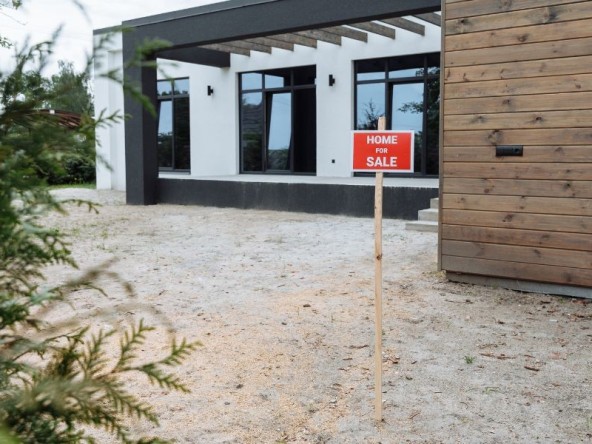Investing time and effort before you put your home up for showings will most likely increase the probability of receiving offers once you list your house. The longer your house stays on the market, the harder it will be to sell. Repairs, staging, and cleaning may help attract good offers, but they can be time-consuming and expensive as well.
How do you prepare your Washington, DC home for sale?
1. Identify Repairs and Make a Plan
If you’ve lived in your home for quite some time, wear and tear will probably add up. With doors that squeak, windows that stick, or a toilet that runs, minor issues can be ignored since they just seem like quirks. However, buyers will see these quirks as problems that may lower the value of your home. If you have a lot of recognizable repairs, buyers may also think that there might be more serious issues that could prevent them from making an offer.
Go through your house room by room. Look for holes, dents, and floor cracks. Appliances in the kitchen should be functional. Cabinets and drawers should open and close properly. Faucets, fixtures, and drains should be operational and free from leaks. Tubs and towers should not have broken tiles or water damage.
The heating, ventilation, and air conditioning systems should be leak-free. Water heaters, smoke detectors, electrical panels, and circuit breakers should be working. Look for peeling and cracks in your exterior surfaces, eaves, and windows. Decks and patios should be in a good state. Fencing should not have rust. Landscaping should be trimmed.
You can do some repairs yourself, but more complicated ones might require hiring a professional. Also, repairs and upgrades can increase your home’s value.
2. Declutter and Clean
Make your home feel spacious. Big selling points are large kitchens, bathrooms, and storage. You should remove 50% of your items, according to professional stages. Declutter and organize your spaces by using storage bins. You can tuck them under beds or stack them in basements/closets.
Make an inventory of all your belongings. Label everything. Pack a suitcase of the items you want to hold onto while moving.
Buyers should also be able to walk around without bumping into furniture. You can rent a storage unit offsite during the selling process. Consider hiring a professional to organize and declutter. They can identify items to discard, store, or donate. This also makes moving faster since most of your items will be boxed already.
Hiring a professional to deep clean may be the most effective way to do the job swiftly and methodically. If you’d like to perform the cleaning yourself, assess all the materials in your home to see what else you need to start with. Take one task at a time before moving on to the next. Pull out furniture, get rid of dust, remove carpet stains, scrub your appliances, and wipe down baseboards and doors.
3. Depersonalize Your Home
Buyers should be able to visualize themselves living in your home, imagining their belongings inside. This might be difficult if your house has all your stuff in it. Remove family photos, souvenirs, religious items, diplomas, certificates, hobbies, and collections. Update your accessories if your décor is outdated.
4. Paint Where It’s Needed
Real estate agents always recommend repainting homes before they list. Painting small rooms makes them feel larger. Architectural details can also be highlighted, like crown molding and trim. Always use warm neutral colors like beige, tan, gold, and gray because these shades go with anything.
If you can’t paint the entire home, make sure you paint the kitchen, bathrooms, entryway, and foyer. If you’ve recently had your house repainted, then you can just touch up marks and stains on walls and boards.
Painting isn’t difficult, but keep in mind that it’s time-consuming. It takes around 30 minutes to two hours to prepare and one to two hours per coat to paint an average bedroom.
5. Staging
Make it feel like home. Staged homes sell 88% faster than those that are not staged. You don’t need to spend a lot of money since you don’t need to stage your entire home. Focus on the kitchen, living room, bathrooms, and master bedroom. Staging is about the details and giving your room a purpose.
Don’t forget to stage the exterior also. Your home’s exterior increases the house’s value by 17%. Keep your yard neat. Trim the grass, bushes, and shrubs. Plant flowers to add color.
Your real estate agent can recommend a professional stager if this is not your forte. In many cases, they will cover the cost of staging, too.
6. Keep Your Home Clean and Consistent
Maintain the level of repair and decoration that you worked on. Showing requests can happen anytime, so you must be ready. Create a cleaning calendar and stick to it. Put away things when you are not using them. Enjoin the whole family. Wipe all surfaces daily. Wastebaskets should always be emptied. Sweep the floor before you leave the house. Mow your lawn once a week.
If you have kids, create a rule about how many toys they can play with at one time. If you have pets, maybe you can have them boarded with a friend, a relative, or a boarding kennel to remove pet odors. Your house might be on the market for weeks or months. You can also consider moving out of the house while it’s on the market if possible.
Takeaway
Selling your home is about taking an objective look from a potential buyer’s vantage point. You can ask your friends and family for their feedback and comments after you’ve done all the steps above to be sure that you are ready to put your home on the market.
With a top real estate agent like The DC Team at your side and a solid game plan, you can successfully sell your home and make a continuous changeover to the next stage of your life. When you prepare your Washington, DC luxury home for sale, just remember to do your research, buy the correct materials, take your time, and if you need extra help, hire the experts.




